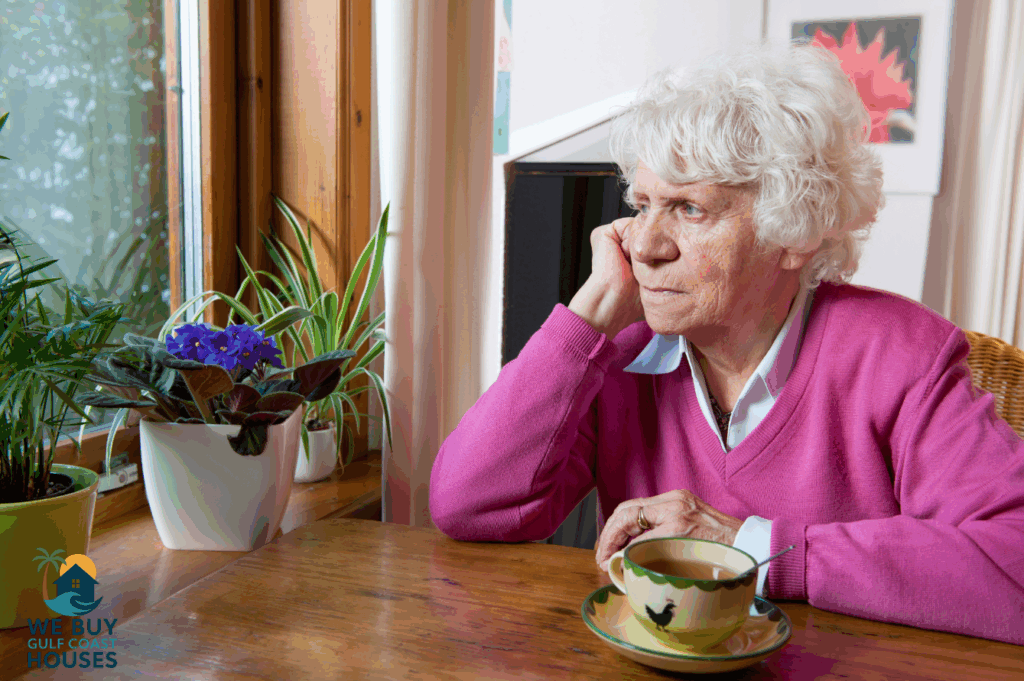Imagine settling into a nursing home in Florida, relieved your care is covered—but dread sets in when you wonder, “Will they take my house?” This concern is valid: long-term care is expensive, and Medicaid estate recovery can affect families. In 2025, Florida’s laws still protect your homestead while alive, but may pursue assets after death. This guide explores the homestead exemption, equity limits, planning tools like Lady Bird deeds, and what to expect in 2025.

Florida’s Homestead Exemption & Home Equity Limit
Florida’s homestead rule keeps your primary residence safe from Medicaid while you’re alive—even in a nursing home—as long as:
- You or your spouse lives there, no matter its value.
- If single and no one lives there, your home equity must be under $730,000 in 2025.
Tip: If you’re single and enter a facility, file an Intent to Return statement to keep the home exempt.
Does the Nursing Home or Medicaid Immediately Take Your House?
Not while you’re living:
- No, Florida cannot seize your home for Medicaid while you’re alive if you—or your spouse—remain living there.
- A lien may be placed only if the stay is considered permanent—but that does not force a sale until after death.
What Happens After You Pass Away?
Under federal law, Florida must recover Medicaid—especially long-term care—from your estate if you’re over 55 or received nursing home care. Your home often becomes the primary source. But Florida’s homestead law provides crucial protections:
- If left to a spouse or heir-at-law, the home is exempt from forced sale after death.
- Ensure a Will does NOT order sale of the home, and that you’ve kept homestead status (e.g., avoid converting it to rentals).
Estate Recovery Tools & Exemptions
Protective strategies include:
Lady Bird Deed
A special deed transferring future ownership to beneficiaries while you retain control. Avoids probate—keeping the home out of recovery.
Life Estate Deed
You grant a remainderman ownership upon death, remaining in control during your lifetime. May avoid probate if structured correctly.
Irrevocable Medicaid Asset Protection Trust (MAPT)
Transfer your home 5+ years before applying to shield it from Medicaid eligibility and estate recovery.
Intent to Return
A written declaration preserving homestead exemption while institutionalized.
Common Pitfalls & Planning Tips
- Ignoring homestead protections: converting to rentals can invalidate exemptions.
- No legal documents: without a Will, Lady Bird deed, or trust, your home may end up in probate and subject to recovery.
- Look-Back Period: asset transfers within 60 months trigger penalties.
- Community spouse considerations: If one spouse remains at home, the property is protected—ensure the home is titled in the living spouse’s name.
Should You Sell or Consider a Cash Investor?
If you need immediate funds, selling your house to a cash investor can:
- Provide liquidity for care.
- Allow renting back or relocating.
- Avoid Medicaid complications tied to home ownership.
This can be a strategic option where traditional planning is not viable.
2025 Updates & Action Items
- Equity limit remains around $730K; no change for 2025.
- No new estate recovery rules have emerged in 2025.
- Updated annual planning and legal review are essential to stay ahead before entering a facility.
TL;DR Summary
| Situation | Outcome |
|---|---|
| Alive & living in home/spouse present | Home is exempt—no seizure |
| In nursing home, intent declared | Exempt until death |
| After death, left to spouse/descendants | Exempt via homestead |
| No planning — probate | Likely sale for estate recovery |
| Use Lady Bird/Trust | Avoid probate → avoid recovery |
| Sell to cash investor | Immediate funds, avoids complications |
FAQ
1. Can Medicaid force me to sell my home while I’m alive?
No—if you or your spouse lives there and the equity remains under $730K (if single), homestead is protected.
2. What is the “Intent to Return” statement?
A written declaration that you plan to return to your home, preserving its exempt status while in a facility.
3. Will Florida take my house after I die?
Only if it passes through probate to non‑heirs; if left to spouse or direct descendants, it’s exempt.
4. What planning tools are effective?
Lady Bird deeds, irrevocable trusts (5‑year look‑back), life estates, and properly using spouse provisions.
5. Would selling to a cash investor help?
Yes—it can provide funding for care and avoid home‑ownership complications in Medicaid eligibility.
